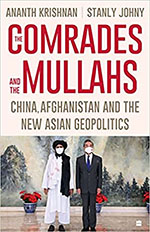One of the most momentous events of 2021 was the quick withdrawal of the American troops from Afghanistan. The irony of the event was that after spending two decades in Afghanistan fighting to eradicate the Taliban, the United States was unable to do so. When the United States withdrew from Afghanistan in 2021, it was the Taliban which was on the path to establish the new government. The authors argue that Afghanistan was the new Vietnam for the United States.
The book under review is a crisp and succinct summary of the developments in the region. It covers the historical background of the situation and developments. It discusses and analyses them in a beautifully told narrative and juxtaposes the developments in Afghanistan, Pakistan, India, China and the US brilliantly to build a base for the arguments. The book is a timely and important addition to the already existing corpus of literature on the discussed topic. It doesn’t matter if you are a scholar or a student, the book is a must read. Though it doesn’t provide you with a lot of new information, what it does is to deliver the existing information in a coherent and logical fashion. It also does connect the dots on why and how things happened in Afghanistan.The developments in Afghanistan are not limited to Afghanistan only. Domestic challenges and politics of the United States, Pakistan and China all play a crucial role in how they look at Afghanistan and how they interact with it. The book summarizes these very challenges and developments.
For the United States the war in Afghanistan was not panning out as it would have expected. It was proving to be a drain on resources and the mounting human loss was not going down well with the American public, especially after the killing of Osama bin Laden. To add to this, the rise of China as a potential challenger to the unipolar world order is also an important geopolitical concern for the United States.

